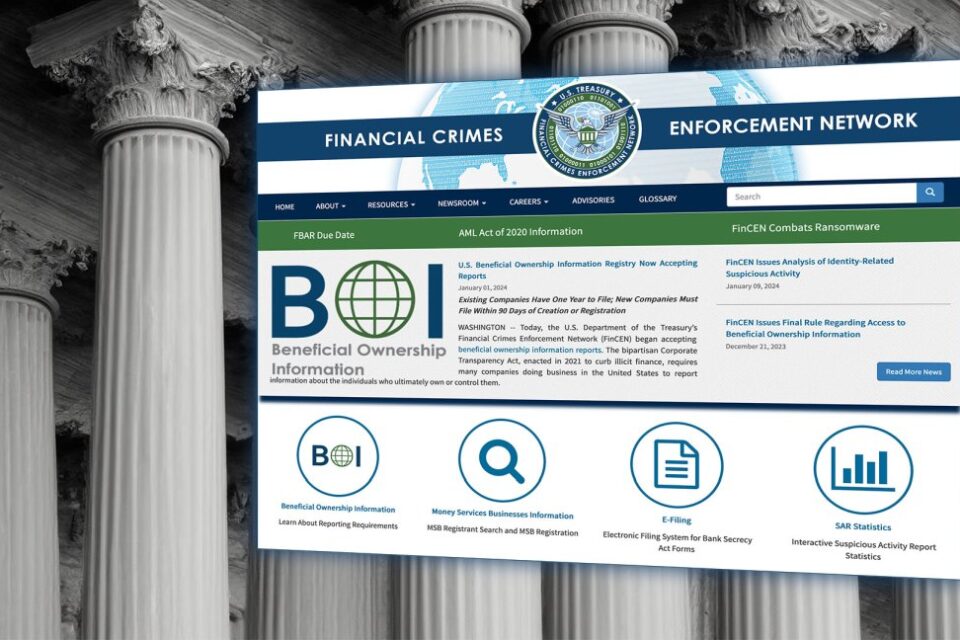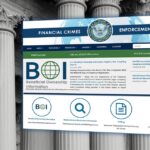Huge Win for Tech Startups: Judge Suspends Enforcement of FinCEN Reporting Requirement That Would Have Cost $22.7 Billion in Compliance

Back in the summer, we covered the looming FinCEN reporting requirements mandating all U.S. businesses to disclose details about their beneficial owners. This directive, set to take effect on January 1, 2025, stems from the Corporate Transparency Act (CTA) of 2021, which aims to curb financial crimes through increased corporate transparency. FinCEN estimated initial compliance costs at a staggering $22.7 billion, with annual costs of $5.6 billion thereafter.
In a pivotal move, a federal judge has issued a nationwide injunction halting enforcement of this mandate. The decision comes just weeks before the poorly publicized requirement was set to roll out, leaving businesses—from solo founders to major corporations—scrambling. While this ruling doesn’t eliminate the requirement altogether, it prevents the Treasury Department from enforcing it until ongoing legal challenges are resolved.
“There are now CTA cases pending in the Fourth, Fifth, Ninth, and Eleventh Circuits,” attorney and Forbes contributor Kelly Phillips Erb, known as @taxgirl on X, shared. “It’s looking more like it could end up at the Supreme Court.” There’s also speculation that a potential Trump administration might narrow or dismantle the mandate altogether.
Big news – FinCen BOI reporting has been delayed indefinitely..
A federal court out of Texas issued a sweeping order saying the government may not enforce a January 1 filing deadline.
You are still free to report, but this can seems to be kicked down the road for a while.
— Mitchell Baldridge (@baldridgecpa) December 5, 2024
Noncompliance with FinCEN Rules: Daily Fines of $591, $250K Penalties, and Up to Five Years in Prison
The CTA directive casts a wide net, requiring most U.S. legal entities to report ownership and control details to a federal database managed by FinCEN. This includes small businesses, tech startups, and even single-member LLCs—many of which remain unaware of the rule. Noncompliance carries heavy penalties, including daily fines up to $591, criminal fines up to $250,000, and potential prison time of up to five years.
FinCEN’s criteria for beneficial owners include individuals who:
- Hold at least 25% ownership in the company
- Have substantial control, encompassing senior officers and key decision-makers
The stated goal is to prevent illegal activities through anonymous shell companies. Beneficial owners are required to submit official identification, such as a passport or driver’s license, as part of the reporting process. This regulation aimed to catalog ownership information for more than 32 million entities in a federal database. However, compliance has lagged, with fewer than 4 million entities submitting reports as of August.
Critics have raised concerns over privacy and security. FinCEN has faced scrutiny for its handling of sensitive information, including a 2020 leak of over 2,000 suspicious activity reports, which highlighted vulnerabilities in its systems.
In a recent ruling, U.S. District Judge Amos Mazzant sided with plaintiffs, including the National Federation of Independent Business (NFIB), asserting that the CTA overreaches federal authority. Judge Mazzant emphasized that corporate regulation traditionally falls within state jurisdiction, and the CTA’s requirements disrupt this balance.
Following the Texas judge’s 80-page ruling n Tuesday, FinCEN issued an alert on its website to notify business owners, saying: “reporting companies are not currently required to file their beneficial ownership information with FinCEN and will not be subject to liability if they fail to do so while the preliminary injunction remains in effect.” For now, businesses can choose to submit the reports voluntarily. However, a pinned post on the agency’s X account claiming it “may take 20 minutes or less,” which offers little reassurance.
Beth Milito, Executive Director of NFIB’s Small Business Legal Center, celebrated the decision: “This ruling is a huge victory for small businesses nationwide, and just in time” said Beth Milito, Executive Director of NFIB’s Small Business Legal Center. “Many Main Street small businesses…were a mere four weeks away from the deadline to file their information in accordance with the CTA. The BOI [Beneficial Ownership Information] reporting requirements are a harmful invasion of small business owners’ privacy and a misuse of their valuable time.”
Meanwhile, privacy concerns extend beyond simply sharing the names of beneficial owners with federal authorities—FinCEN has already shown vulnerabilities in safeguarding its reports against leaks.
For now, the future of the FinCEN reporting requirement hangs in the balance. Legal battles, potential appeals, and even political shifts could reshape its trajectory. Startups and small businesses alike will be closely watching as this regulatory drama unfolds.




